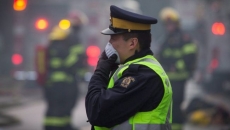1. Canada is a preferred destination for International students, was the cap on international students the only way to address the housing crisis? Are the students to blame here or are they the victims of the ongoing housing shortage?
International students make immense contributions to Canada. They are not responsible for the housing shortage, and the cap was not a housing announcement. The growth of Temporary Residents adds to demand for housing and other services people must be able to access, including international students. It is not right that they are promised the Canadian Dream by academic institutions (some more legitimate than others), then never see these promises come to fruition. You don’t have to look far to see these students being taken advantage of, examples of 12 people sharing a basement have rightfully made headlines.
We expect institutions to accept the number of students that they can support, and provide housing options. As there are now more than 1 million study permit holders in Canada, the number of students has become unsustainable. This temporary cap is necessary to stabilize growth and protect the integrity of the International Student Program while additional reforms take effect.
2. According to an in-depth investigation by the CBC, few private colleges operate only to profit off international students and then leave them feeling duped. How can more transparency be brought about to spread the stop of misinformation?
As education is in provincial jurisdiction, the provinces must step up. Provinces determine their Designated Learning Institutions (DLIs). Fly-by-night schools, or puppy mill schools should not be in operation, so we hope that provinces will take action. We have also provided a finite number study permits, which should be allocated accordingly.
Some provinces also allow public colleges to license their curriculum to a private college, with students physically attending the private college but graduating with a diploma from the public college. As oversight of private colleges is inconsistent among provinces, the eligibility criteria for the Post-graduation work permit (PGWP) excludes private college graduates. By clarifying that graduates of these programs are not eligible for a PGWP, we are confirming the policy that graduates who attend a private college aren’t eligible.
3. Don't you feel this is a punitive measure for students who are bright and want to come to Canada for quality education?
We value the contributions international students bring to Canada. To set these students up for success, we must tackle issues that have made some students vulnerable and have challenged program integrity. This includes making sure we can support international students coming to Canada, while deterring bad actors.
4. International students who have been here for sometime are still feeling challenged when it comes to finding jobs, housing, and face discrimination etc. What mechanisms can the immigration system implement to help them make their transition smoother?
To set international students up for success, we must tackle issues that have made them vulnerable, challenging the integrity of the program. This includes making sure we can support international students coming to Canada. The cap aims to deliver stabilize the number of international students while it is in place.
Provinces and territories determine which institutions can host international students, and until recently, DLIs accepted as many international students as they wanted. With these new measures, provinces and territories will control how permits are allocated. We expect these institutions to only accept the number of students that they can reasonably support.
We are working with key stakeholders to advance a trusted institutions model. This will reward good actors, who have a plan in place to support housing for students.
5. The Career Colleges Association fears that the cap is going to lead to labour shortages-for instance people who are training people in construction trades who would go on to build new homes. How concerning is that for you?
While population growth through immigration increases demand for housing, infrastructure and services, it also contributes significantly to the supply of labour, that we need to build new homes and support the health care sector.
Temporary and permanent economic immigration pathways play a complementary role in helping address Canada’s labour market shortages in the construction sector. From 2016 to 2023, IRCC has admitted over 44,000 permanent residents with work experience in trades occupations, through its various programs.
6. Graduates of master's and other "short graduate-level programs" will "soon" be able to apply for a three-year work permit. What is the timeline on that?
As of February 15, 2024, graduates of master’s degree programs that are less than two years in duration are now eligible to apply for a three-year PGWP.
7. Talking about the integrity and fairness of the immigration system, inviting people to come to Canada who may then not be able to find an affordable place to live-what kind of a message does that send about Canada?
We are reviewing the program to better support international students in Canada. IRCC is currently looking at an options and continue to work closely with provinces and territories and educational institutions to address these ongoing challenges.
In December we announced that the cost-of-living financial requirement for study permit applicants will be raised so that international students are financially prepared for Canada. This threshold will be adjusted yearly when Statistics Canada updates the low-income cut-off (LICO). For 2024, a single applicant needs to show they have $20,635, representing 75% of LICO, in addition to their first year of tuition and travel expenses. A student without adequate funds is more vulnerable to being exploited by an employer or forced to accept a poor housing situation.
We continue to work with provinces and territories, DLIs and national education stakeholders on a path forward.
8. The cap will be in place for two years; the number of permits to be issued in 2025 will be reassessed at the end of this year-so what happens after that?
We’ll be monitoring this program closely, and adapting accordingly.
9. Even though post-secondary education is a provincial responsibility in Canada will the Feds and the provinces be working together to sort out this situation?
Absolutely. We will continue to work closely with provinces and territories, DLIs and national education stakeholders on a path forward.
10. What's a message you would like to share with the South Asian community
The South Asian Community has shaped Canada and enriched our future. Whether it’s those who have been here for generations or have recently chosen to call Canada home, the wonderful contributions of this community are clear!






